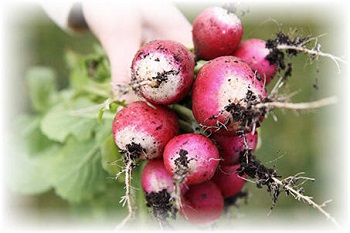
Beware, the Natural Food Rage is on!
Watch out for the Natural Food rage!
Do you find yourself being enticed by food labels like "100% natural", "all natural", "natural", thinking that they must be healthier to consume? And, have you ever queried about what the term "natural" actually means? Hmm well..., they probably mean "free of preservatives, chemicals and other similar types of additives"? Oops, wrong.
Don't get too thrilled and duped by "natural" marketing claims. In food manufacturing and advertising, the word "natural" has very generic meaning and has no precise legal standard or definition. In fact the term can be very confusing and deceptive for us consumers.
"Natural food" is not synonymous with "unprocessed food" or "organic food". Ingredients contaminated with bacteria, pesticides or chemical fertilizers can be found in so-called "natural foods". For instance, tomatoes are usually picked green, and then treated with ethylene to coax them into ripening and turning red. So how natural are these tomatoes? This explains why there is a demand for organic foods.

To go for natural food, eat a lot of fresh fruits and vegetables, and foods that have been subjected to minimal processing. But, the challenge for us consumers is then to know to what extent foods on the shelves have been processed. Even most commercial "raw honeys" have been heated to a certain extent during processing for packaging; hence they are not 100% raw. Also, when encountering a package of brown "raw sugar", many people assume that it's less processed than white sugar and thus, healthier, just like how the story goes with white rice and brown rice. The truth is, raw sugar is just slightly less refined, the amount of molass present in it is so insignificantly small that there is no more nutritional value than in white sugar.
Sometimes, manufacturers use "natural" loosely to mean that the food has not been processed very much and doesn't have a lot of additives. And, you probably have come across "natural" products with contents ‘derived from natural sources' or products containing "no synthetic ingredients". Well, the catch is, synthetic, artificial ingredients can also be made from substances found in nature! Thus, we can find canned drinks that are termed "only 100% natural' ingredients" containing "high fructose corn syrup, natural citric acid, natural flavours and natural potassium citrate." Sounds all too familiar...?
Finally, remember that a food claiming to be "natural" does not mean that all the ingredients in it are natural. Once I bought a bottle of "pure natural honey" only to discover later that "maltose" was one of the contents listed on its food label. I am also sure you have seen candies or fruit juices being marked with "with real fruit" labels. These products can have only one "natural" ingredient and still boast "natural". You see how easy it is for us to be consuming a lot of ungenuine natural food?
Simply put, don't delude yourself, read beyond the word "natural".
Transforming our Body and Life through Living Plants
